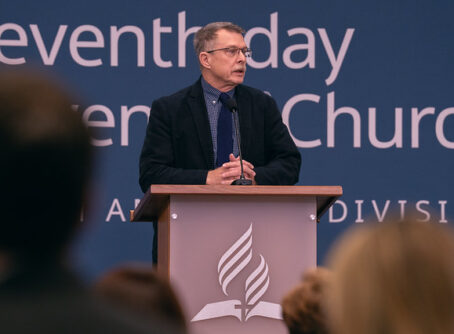PJR Vol. 1 2017, Distinctive Christian Citizenship Series
Timothy Sherratt
Timothy Sherratt is Professor of Political Science at Gordon College and author of Power Made Perfect? Is there a Christian Politics for the Twenty-First Century? (Cascade Books, 2016). He is a Fellow with the Center for Public Justice.
Stock-taking. stock·tak·ing. Noun. The action of reviewing and assessing one’s situation and options. The 2016 general election has given rise to considerable stock-taking. To some degree, this series, too, invites a stock-taking of citizenship– its scope, limits, responsibilities, and powers.
Now in January 2017, a new president has been inaugurated, a new Congress sworn in, and a new administration assembled, most of its senior figures subject to Senate confirmation hearings, which have begun. The changeover from Democrat to Republican in the White House naturally heightens interest and anxiety about the direction in which the new president will take the country. This year, the controversies that engulf President Trump, elected to this highest office without conventional preparation to serve in it, and coming off a campaign conducted in a style that left unusually intense bitterness in its wake, has only underlined these anxieties.
So, stock-taking is appropriate, for we may be anxious, but we are called to be faithful. Among the resources at our disposal, Christians may insist, is the gift of authority.
If early reactions are anything to go by, Donald Trump becoming president makes taking up the topic of authority more challenging than it would be otherwise. To write on God’s good purposes for authority as the new president takes office is, of course, to invite the skepticism of those who chanted “Not my president!” in the streets of America’s major cities for several nights after the election, who remain unconvinced of his fitness for office. Supporters of both parties have had ample reason for dismay. First, as Dan Balz put it, Trump engineered a “hostile takeover” of the Republican party as an effective Independent—and only victory mollified to some degree the resentment of many of its leading figures. For Democrats, the confidence that Trump’s inexperience, missteps, wild claims, unsupported accusations, and boorish behavior would sink his general election campaign came to nothing. For Donald Trump to take office is to witness at least a potential crisis of authority.
For we may be anxious, but we are called to be faithful.
But this must be the place to start, for in David Koyzis’s view, the locus of authority is office. And there isn’t a better occasion for a reflection on authority than the solemn ritual by which the results of an election are confirmed, and the Constitution’s own authors—We, the People, the citizens of the United States—acknowledge the conferring of extensive, if limited, lawful authority on the new Head of State, the leader of the Free World.
The Gift of Authority
In We Answer to Another: Authority, Office, and the Image of God,[i] David Koyzis offers a comprehensive treatment of the concept of authority. I commend this very helpful volume to the reader; all I hope to do here is to appeal to its central claim and to draw out one or two implications of that claim. Koyzis distinguishes authority from mere power, refusing the Hobbesian conclusion that might makes right, and instead grounds authority in the Imago Dei. To be human is to be made in God’s image, and to be so made is to be responsible for the care of creation. This responsibility constitutes an office, or, to follow Koyzis, a multiplicity of offices, for the care of creation is complex and multifaceted, from the cultivation of crops to the care of children and communities. Pluriform though these tasks and associated offices may be, they harmonize in pursuit of the common good.
So far, so good. Koyzis writes in the Kuyperian tradition in which the Center for Public Justice finds its roots and its direction for political engagement. As those familiar with this tradition will know, it was not developed in a vacuum but to challenge the sharply contradictory claims for human responsibility emerging from the French Revolution. Hostile to monarchy and the Church, the French Revolution extolled an Enlightenment view of persons as their own masters, and it underwrote a political liberalism whose highest value was individual autonomy, not stewardly service.
The struggle between these two conceptions of what it means to be human and the views of the ends of politics pervades the contemporary American political reality. In its insistence that individual freedom is the highest of values, and that authority has no place there, liberalism is at best skeptical and at worst downright hostile to all offices or agencies that might restrict individual choice—whether religion, family, state, or group. As Koyzis, and others, have shown, liberalism’s insistence that individual rights be protected against these non-governmental agencies elevates the individual above all other institutions of society, and therefore elevates the state along with it, because only the state can supply the protections demanded. The civil society of non-governmental “offices” vital to human flourishing is thus buffeted from both sides: by the demands for expanding individual choice and by the powers the state would exercise to confirm these expansions.
The French Revolution underwrote a political liberalism whose highest value was individual autonomy, not stewardly service.
The present condition of American constitutional arrangements sees justice as the extension of existing rights and the development of new ones to remove obstacles to individual choice, and a government with powers equal to the task.
In contrast, Koyzis holds that there is no real freedom without the boundaries that authority sets up, for these make life livable and just. It is precisely because the state is not a family, for example, that we can rejoice in the boundaries that demarcate them, and resist efforts to make the latter simply an arm of the former. “Parental authority is not delegated by government,” Koyzis observes, but rather it is to be recognized and room made for it. Similarly, it does not lie within the office of an individual citizen to prosecute crime, to “take the law into his own hands,” but such a function is properly within the jurisdiction of the state. The many offices humans hold may not be subsumed under the office of government if justice is to be done and human communities are to flourish.
Liberalism’s insistence that individual rights be protected against these non-governmental agencies elevates the individual above all other institutions of society, and therefore elevates the state along with it, because only the state can supply the protections demanded.
In summary of the Koyzis perspective, authority’s locus is office in its various forms. God, who alone is sovereign, has charged humans with the stewardship of creation, which issues in a multiplicity of tasks and related offices. In its broadest conception, this view allows us to derive a limited but positive role for government, whose task is to uphold public justice. This task consists largely of facilitating the offices of non-governmental responsible agents—parents, businesses, schools, charities, and the like—all of whose differentiated offices, along with those of government itself, contribute to the common good.
Authority, Office, and Contemporary American Politics
A new administration takes office in a political culture that regards authority as a synonym for oppression rather than a gift for human flourishing. In our Christian heritage of authority, office combines responsibility with the means by which life may be made more just in cooperation with the fount of justice. How may the latter speak to the former?
Perhaps we won’t get very far with public officials, from the president on down, if we remind them that they hold divine office. But it will be important for us to remember that they do indeed hold such office and that we do, too, as citizens. As the Catechism of the Catholic Church declares “God has not willed to reserve to himself all exercise of power. He entrusts to every creature the “munera” [obligations of service] it is capable of performing, according to the capacities of its own nature. This mode of governance ought to be followed in social life … those who govern human communities …should behave as ministers of divine providence.”
A word of clarification is appropriate here. Rights there must be because fallen humans abuse authority. But abuse, not authority itself, is the problem. Authority itself deserves to be recovered from the way many perceive it, as a synonym for oppression, and understood instead as essential to genuine liberty and true social justice.
A new administration takes office in a political culture that regards authority as a synonym for oppression rather than a gift for human flourishing.
As the new season of governing begins, it will fall to citizens, either directly, or through their elected representatives, to call all political office holders to faithful exercise of the offices to which they have been elected or appointed. The pursuit of the common good is the standard by which political office holding is judged, and in one policy area after another, citizens must be vigilant against the abuse of office and urge its responsible use. Are we to have a careful, well-reasoned, evidence-based assessment and reconsideration of the Affordable Care Act, or a cavalier abandonment of the present law that does more harm than good and denies insurance to many who seek it and need it? Is foreign policy to be conducted by appraising American interests narrowly or with attention to the global common good? Will we take careful measure of the aims of our foes or play these up or down for political expediency’s sake? Will the careless statements made by President Trump when he was still a candidate be ignored or confronted? In all areas of policy, will the best advice be sought?
The pursuit of the common good is the standard by which political office holding is judged.
Office is not mere power. Office confers authority, albeit limited. In a democracy, we have not discharged our citizen responsibilities fully when we elect our leaders. Far from it. We must be willing to demand accountability from the administration through our elected representatives to speak and act as if their own responsibilities were as extensive as the Christian heritage suggests, and to reason with those representatives in the idiom of biblical justice. We must do this in a way that forges a relationship and not merely make occasional demands. The best way we can make the point that our citizenship responsibilities are not discharged by periodic voting in elections is to communicate regularly, in an informed and winsome manner with our representatives. In doing this, we practice distinctive Christian citizenship.
Taking Stock as Christian Citizens
I believe the best way for Christians to undertake the “stock-taking” I am encouraging is to share in this task of review and assessment by organizing conversations in our churches to do just that. Understanding how the Bible situates authority in offices derived from the cultural mandate to care for creation is a good thing, a valuable dimension of our education as believers. It is not the same thing as influencing the outcome of the renewed debate on healthcare or the unfolding relationship between the United States and Russia.
I am not encouraging taking stock of our citizen responsibilities in order to offer a quick fix to urgent matters of public policy. But when the Christian community renews its own understanding of its responsibilities and the resources available to meet those responsibilities, that constitutes an important first step towards inculcating this view of citizenship into the Christian community and thereafter into the political community of which we are a part. Make no mistake about it: the resources we need for such an undertaking are at hand. As followers of Christ the King, we can both know and exercise authority for its true ends. In Jesus Christ, we learn that authority is a close relative of love. To paraphrase N.T. Wright, God did not meet the abuses of authority by abolishing authority, as many call for, but by sending Jesus to rule with “utter justice.” Wright goes on, “The human vocation to share that role, that task, is framed within the true justice and mercy of God himself.”[ii]
[i] Pickwick/Wipf and Stock, 2014
[ii] N.T. Wright, The Day the Revolution Began: Reconsidering the Meaning of Jesus’ Crucifixion. HarperCollins, 2016, pp. 79-80.
To respond to the author of this article please email: PJR@cpjustice.org. Public Justice Review (PJR) explores in depth specific questions of public justice, equipping citizens to pursue God’s good purpose for our political community. Articles do not necessarily represent an official position of the Center for Public Justice but are intended to help advance discussion. Articles, with attribution, may be republished according to our publishing guidelines.





